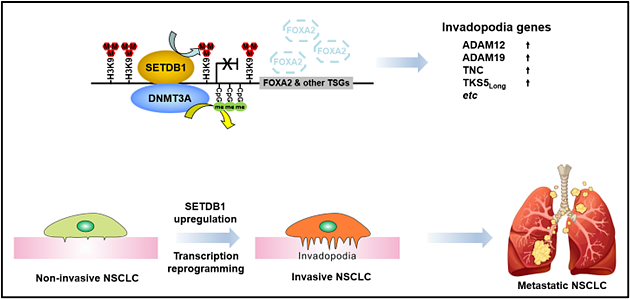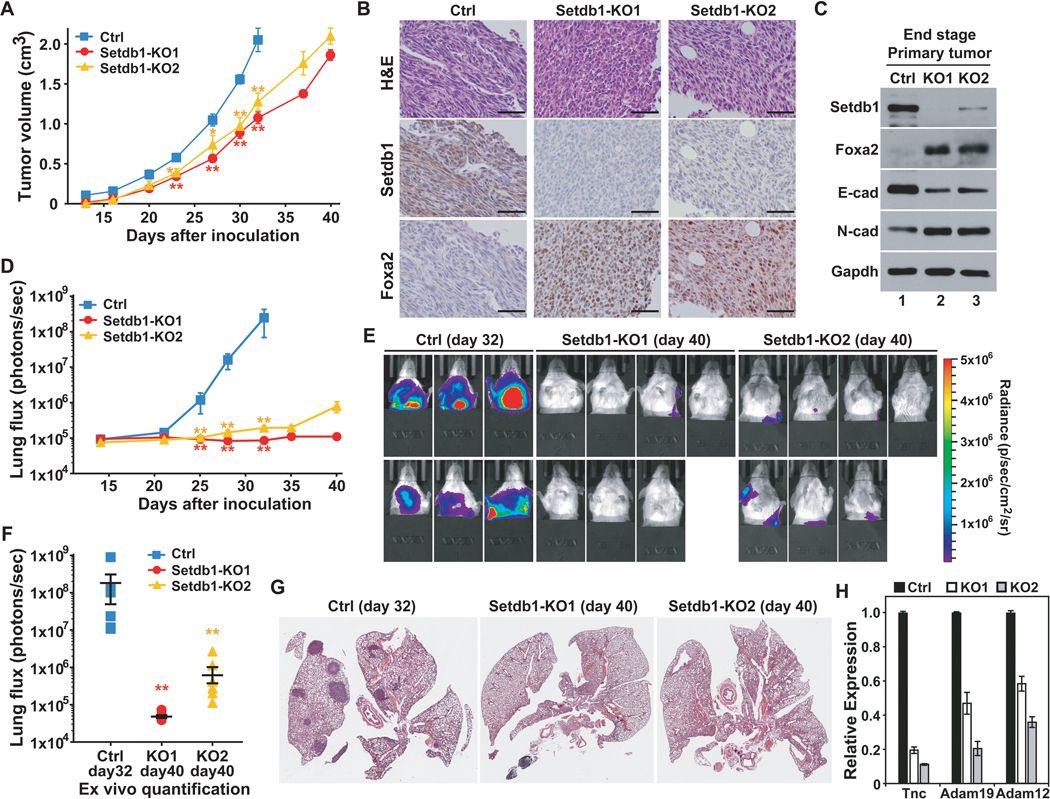Histone methyltransferase SETDB1 promotes non-small cell lung cancer metastasis
Non-small cell lung cancer (NSCLC) is one of leading causes of cancer-related mortality worldwide, which harbors various accumulated genetic and epigenetic abnormalities.
Histone methyltransferase SETDB1 is a pivotal epigenetic regulator whose focal amplification and upregulation is commonly detected in NSCLC. We recently demonstrated that SETDB1 promotes migration and invasion of NSCLC cells by facilitating invadopodia formation and ECM degradation.
At the molecular level, SETDB1 coordinates histone H3K9 methylation and de novo DNA methylation on FOXA2 genomic locus to epigenetically silence this key tumor and metastasis suppressor. In mouse xenograft models, depletion of Setdb1 in murine lung adenocarcinoma cells completely abolished their full and spontaneous metastatic capabilities.
We continue to investigate the pro-metastasis activity of SETDB1 in NSCLC using different model systems.
See the science
Connect with the Fang Lab
Department of Pharmacology and Therapeutics
Roswell Park Comprehensive Cancer Center
Elm and Carlton Streets
Buffalo, NY 14263

